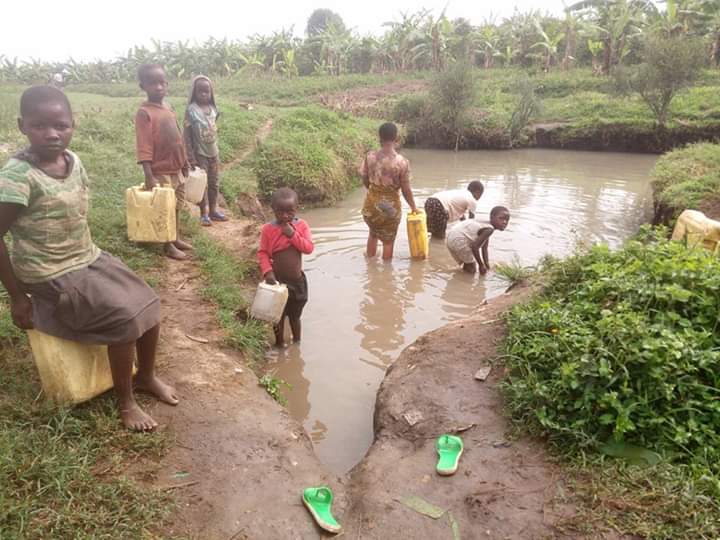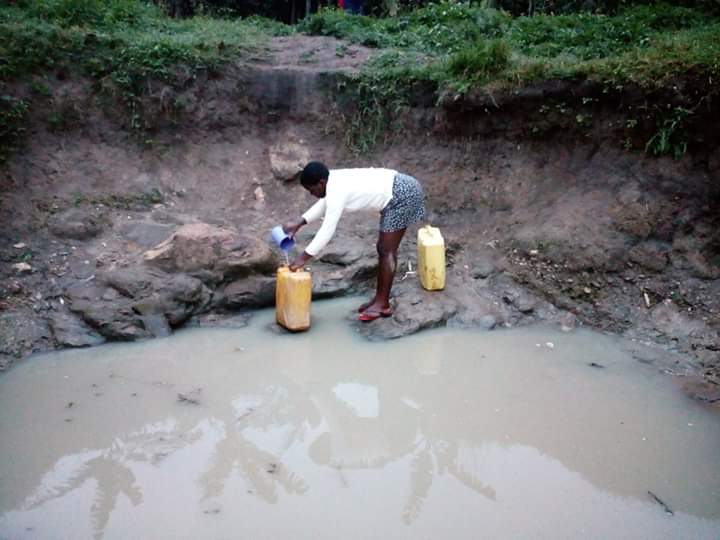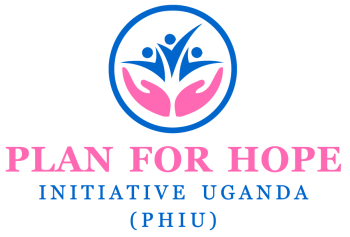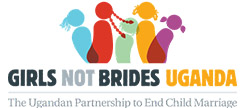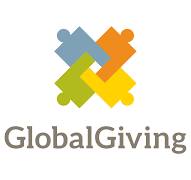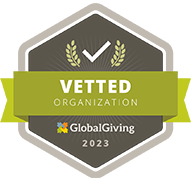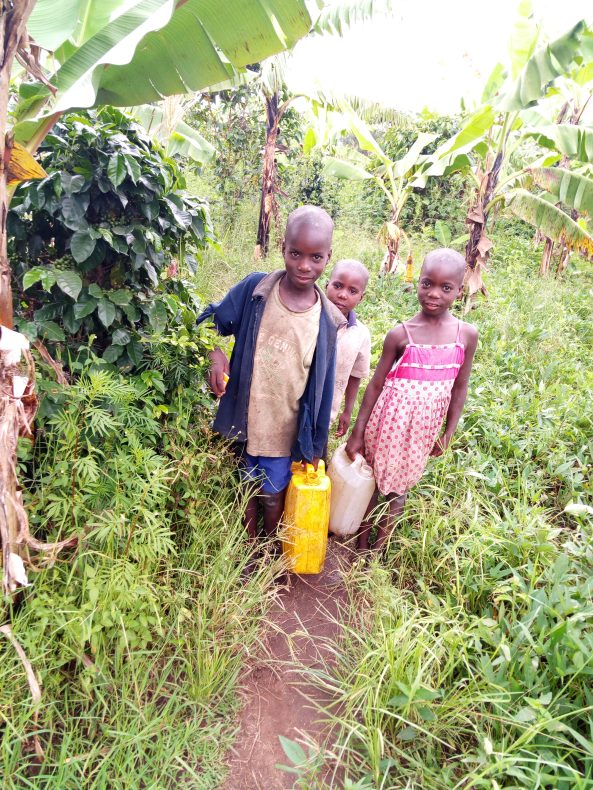
In Rural Uganda, Girls and Women bear the brunt of collecting water for their households. This seemingly mundane task has far-reaching consequences on their Health, Education, and Future Prospects. The journey to collect water is often long, arduous, and fraught with danger, exposing girls to physical harm, Emotional trauma, and Social Exploitation.
The Long and Perilous Journey
In many Ugandan communities, Girls as young as 10 years old are tasked with collecting water from distant sources, often walking for miles under the scorching sun or in the dead of night. This journey is not only physically demanding but also exposes them to various risks, including:
1. Sexual violence: Girls are vulnerable to Rape, Defilement, and other forms of Sexual Abuse while collecting water. These traumatic experiences can have long-lasting effects on their Physical and Mental Health.
2. Physical harm: The long distances and heavy water loads can cause physical injuries, such as back strain, broken bones, and fatigue.
3. Snake bites and animal attacks: Girls may encounter venomous snakes, wild animals, and other hazards while collecting water, which can be life-threatening.
4. Missing school: The time spent collecting water often conflicts with school hours, forcing girls to miss classes or drop out of school altogether.
Consequences on Health and Education
The burden of collecting water has severe consequences on girls’ health and education:
1. Poor academic performance: Missing school and dropping out can lead to poor academic performance, limited future opportunities, and a perpetuation of the cycle of poverty.
2. Health complications: The physical demands of collecting water can lead to health complications, such as back problems, joint pain, and reproductive health issues.
3. Menstrual health challenges: Girls often lack access to proper menstrual hygiene facilities, leading to discomfort, shame, and further marginalization.
4. Malnutrition and dehydration: The time spent collecting water can lead to reduced time for other essential activities, such as studying, playing, and eating, resulting in malnutrition and dehydration.
Link to Women’s and Girls’ Health, Child Marriage, and Sustainable Development Goals
The struggle to collect water is intricately linked to broader issues affecting women’s and girls’ health, child marriage, and the Sustainable Development Goals (SDGs):
1. Women’s and girls’ health: The burden of collecting water exacerbates existing health disparities, particularly in reproductive health, maternal health, and menstrual health.
2. Child marriage: Girls who are forced to collect water are more likely to be married off early, as their families may view them as a burden or a source of labor.
3. SDG 4: Quality Education: The time spent collecting water conflicts with school hours, hindering girls’ access to quality education and perpetuating the cycle of poverty.
4. SDG 5: Gender Equality: The disproportionate burden of collecting water on girls and women reinforces existing gender inequalities, limiting their opportunities for social, economic, and political empowerment.
5. SDG 6: Clean Water and Sanitation: The lack of access to clean water and sanitation facilities perpetuates the cycle of poverty, poor health, and limited opportunities for girls and women.
Climate Change and the Drying of Water Sources
Climate change has exacerbated the water crisis in Uganda, particularly in rural areas. The drying of water sources has led to:
1.Increased distances: Girls and women must travel even longer distances to collect water, increasing their vulnerability to physical harm, sexual violence, and other risks.
2. Reduced water quality: The decreased water table and increased evaporation have led to reduced water quality, making it unsuitable for human consumption and increasing the risk of water-borne diseases.
3. Increased competition: The scarcity of water has led to increased competition for this precious resource, often resulting in conflicts between communities and further marginalizing vulnerable groups, including girls and women.
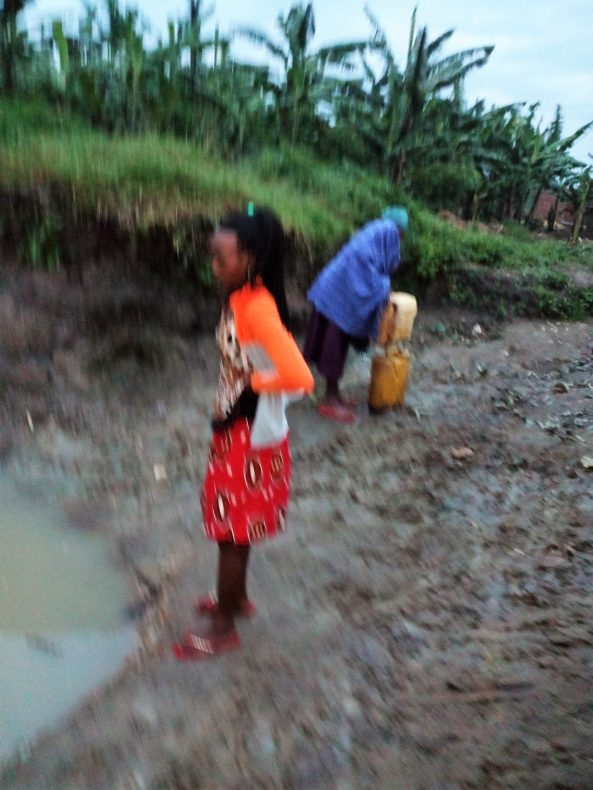
Breaking the Cycle: Solutions and Recommendations
Promote water conservation: To address the complex issues surrounding girls’ water collection in Uganda, we must adopt a multifaceted approach that incorporates the following solutions and recommendations:
1. Invest in water infrastructure: Governments, organizations, and communities must invest in building and maintaining water infrastructure, including wells, boreholes, and piped water systems.
2. Implementing water-saving measures, such as rainwater harvesting and efficient irrigation systems, can help reduce the demand on existing water sources.
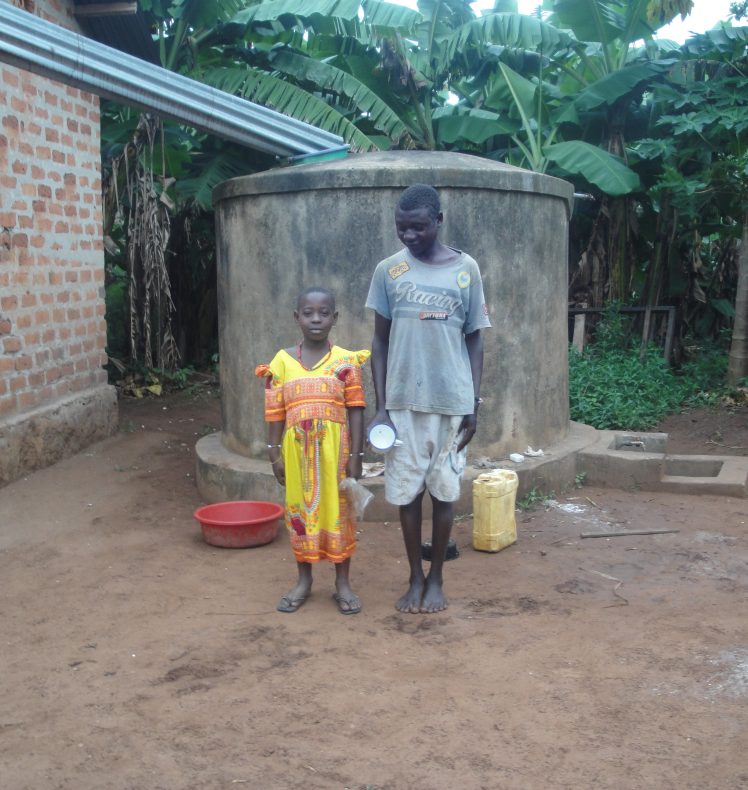
3. Support Girls’ Education: Ensuring girls have access to quality education can empower them to make informed decisions about their health, well-being, and future prospects.
4. Address Child Marriage and Gender Inequality: Governments and communities must work together to address child marriage, gender inequality, and other social and cultural norms that perpetuate the burden of water collection on girls and women.
You can support us to address these concerns by DONATING to our Climate Change projects
